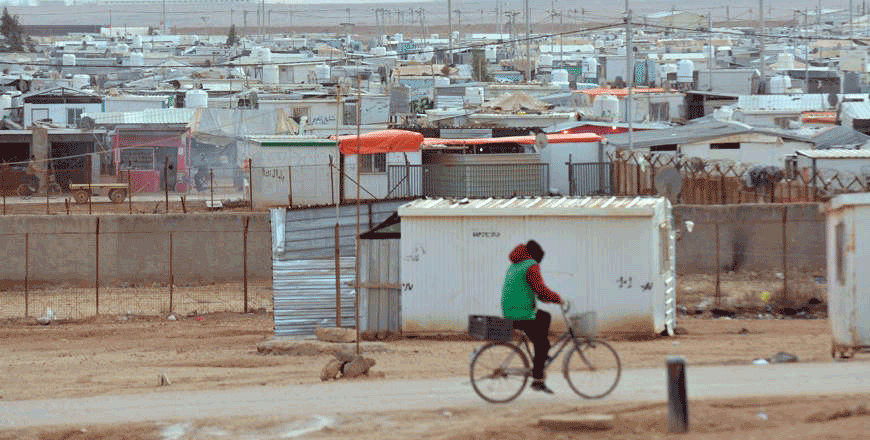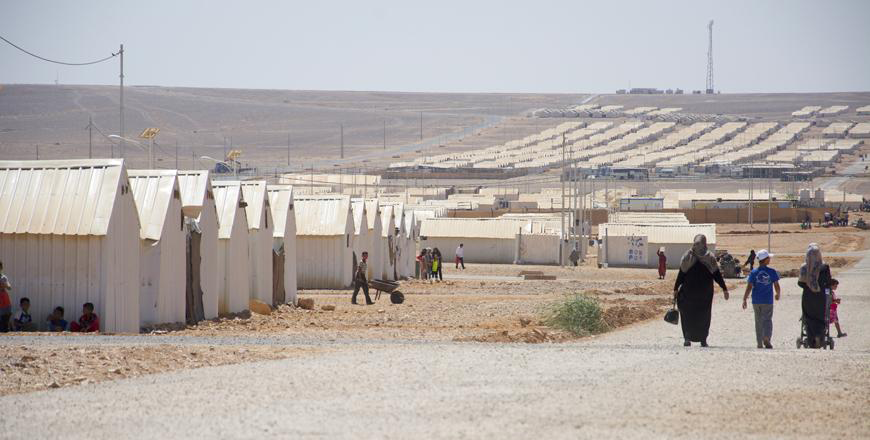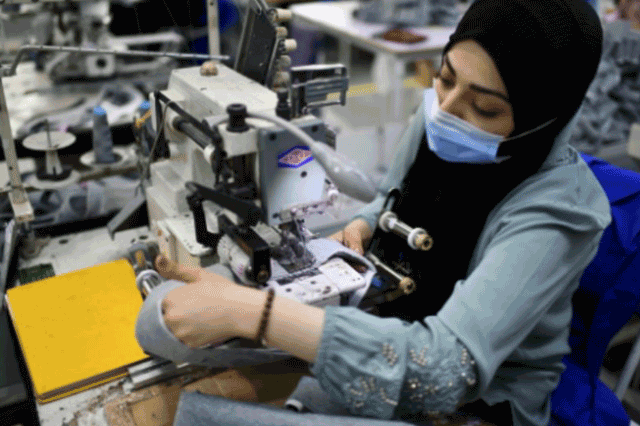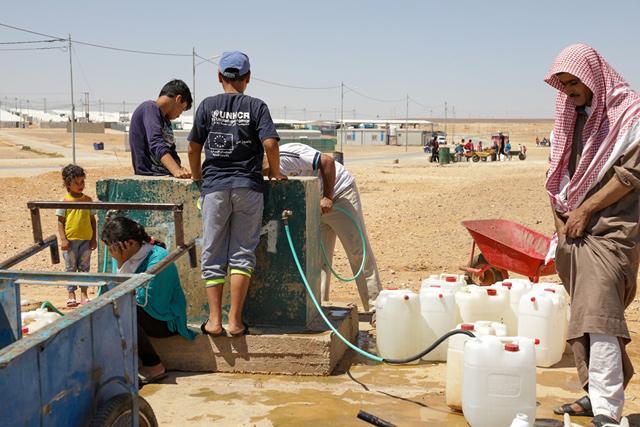You are here
88% of region’s Syrian refugee families have insufficient income — UNHCR
By Rana Tayseer - Jun 10,2023 - Last updated at Jun 10,2023

Jordan has hosted more than 1.3 million Syrians since the beginning of the Syrian crisis in 2011, including 660,000 Syrian refugees registered with UNHCR as of the end of May 2023 (JT file photo)
AMMAN — A survey implemented by the United Nations High Commissioner for Refugees (UNHCR) showed that the income of 88 per cent of Syrian refugee families in four Arab countries, including Jordan, is not sufficient to meet basic needs.
Hosting refugees constitutes a challenge for Jordan and its difficult economic conditions, and the country’s limited resources are stretched thin when trying to meet refugees’ nutritional, health or educational needs, economist Wajdi Makhamreh told The Jordan Times on Saturday.
“There must be greater support from the international community for the countries hosting refugees, especially Jordan, which hosts the largest number of refugees of different nationalities, whether Palestinian refugees, Iraqis, Syrians, or Yemenis,” Makhamreh said.
Given the conditions afflicting the Jordanian budget, it is possible that the budget cannot cover all the needs of refugees. “So, there must be support, and the government must stress the need for support,” he added.
The international survey to measure poverty among refugees in Jordan revealed that 39.8 per cent of refugees in Jordan, with the exception of Palestinian refugees, suffer from food poverty, which is defined as having less than JD16.71 to spend on food per month per person.
The study, conducted in Egypt, Lebanon, Jordan and Iraq between January and February 2023, revealed that 1.1 per cent of the Syrian refugees surveyed intend to return to Syria the next 12 months, compared to 1.7 per cent in 2022 and 2.4 per cent in 2021.
The most pressing issues identified by refugee respondents include a lack of job opportunities, a lack of financial assistance, outstanding debts, a lack of access to health services, threats of eviction, tensions with the host community and other challenges related to education, security, legal residence and obtaining documents in the host country.
The study showed that 71 per cent of the refugee respondents and their families face challenges during their daily life, and 88 per cent of the respondents reported that their income is not sufficient for them and their families to meet their basic needs.
Study respondents said they struggled to cover costs related to housing, food, basic goods, such as clothing, clean up items, minimal furniture, medical services and medicines.
The eighth of its kind, 2,984 refugees participated in the recent study, which measures Syrian refugees’ perceptions and intentions to return to Syria.
Jordan has hosted more than 1.3 million Syrians since the beginning of the Syrian crisis in 2011, including 660,000 Syrian refugees registered with UNHCR as of the end of May 2023.
Related Articles
AMMAN — The majority of Syrian refugees in Jordan prefer to stay in the Kingdom for the time being, according to survey carried out by the U
AMMAN — A survey recently published by the United Nations High Commissioner for Refugees (UNHCR) revealed that only 13 per cent of Syrian re
AMMAN — The UNHCR currently has no plans to reduce the amount of cash assistance it provides to Syrian refugees in Jordan despite a decrease



















